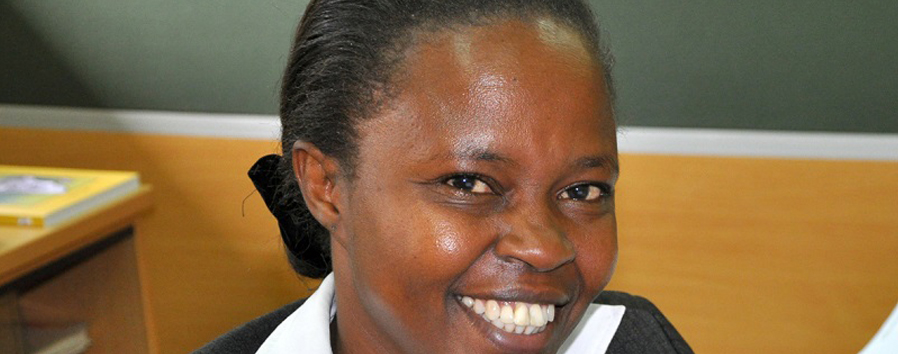
Pauline Bomett is passionate about reading, organising and working with people and this is manifested in how well she interacts with the colleagues and course participants during our courses.
Bomett has been with AWARD since its beginning and is the Leadership and Training Manager. She shares her highlights and the changes she has observed as AWARD continues to grow.
What have been your memorable moments over the years?
I love the AWARD Fellows and I get inspired when the fellows blossom into new versions of themselves. For example, there was a fellow who was very timid at the beginning of the program. I approached her and encourage her to open up. One day, on her return from a conference, she came to me and thanked me for being a non-official mentor to her. This was very memorable as it is a good example of how it pays to encourage the women even when it is not part of your job description.
You have interacted with fellows during leadership courses and also with scientists in the field of agriculture and science. What are some of their biggest career challenges that you have noticed?
In the field of Agriculture Research and Development (ARD), you may find scientists who have been promoted but lack leadership and managerial skills. So they find it hard to work well with teams. These skills are not taught in science. For women, they tend to place themselves second to the men when it comes to considering leadership positions. This may be attributed to culture but I have often noticed most women suffer from lack of confidence.
AWARD has added new trainers. What are you hoping they will bring into the programme?
I am happy our training pool is growing which is a notable improvement when you look at where we started in 2008. I hope that the diversity and experience the new trainers bring from different regions within the continent will enrich our leadership and mentoring courses. Moreover, they are younger and I expect that we will bridge any age gap that there is. What is lacking in the older trainers they will compensate for and what is lacking in the young trainers the older trainers will complement.
In your opinion are leaders born or made?
That’s a very good question especially when you discover like I did that leaders are both born and that they can also be made. Born leaders may lack the finesse and need to be natured to grow into the leadership role. Made leaders, also need to be taught the skills required to take up responsibility.
AWARD is looking at working even more with partner institutions in the future. What do you expect to achieve out of this for the training unit?
I have always yearned to work with research institutions since they shape ARD on the continent. I am hoping that these institutions will see the positive influence AWARD has on its fellows and they will adopt a similar method in developing their other teams and making the whole institution more dynamic.
You say you are an avid reader, what is your most memorable book and why?
I love reading. When I was working for The Gender & Diversity Programme, I read a book titled, “7 Habits of Highly Effective People” by Stephen Covey. It was my turning point in understanding leadership. It taught me that before you master someone, you have to master yourself. I love the book because it advocates the same principles as AWARD, which include ‘growing oneself’. I encourage people to read books. I believe that a good leader reads.
